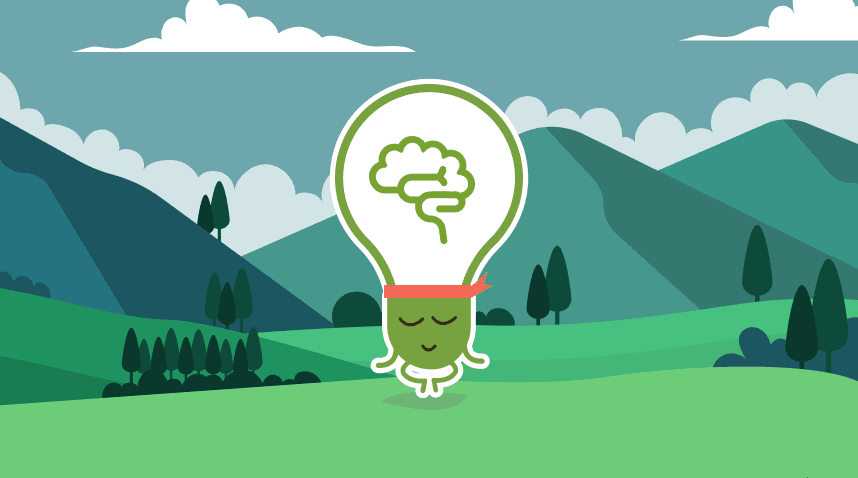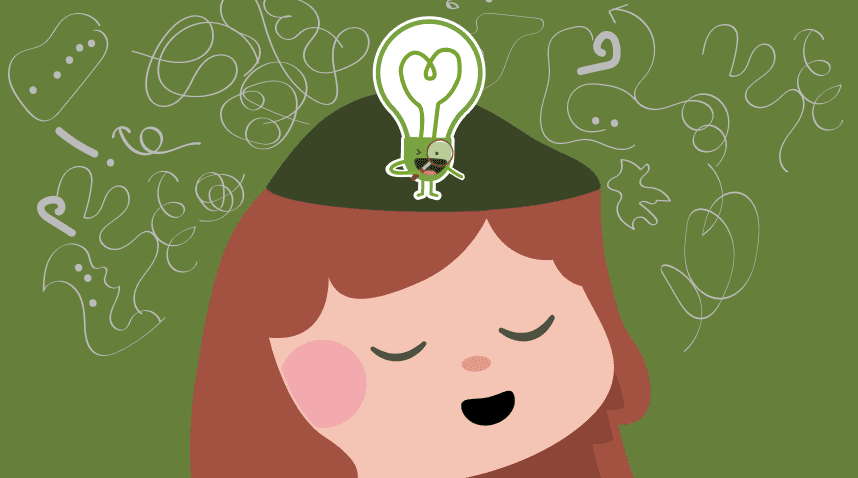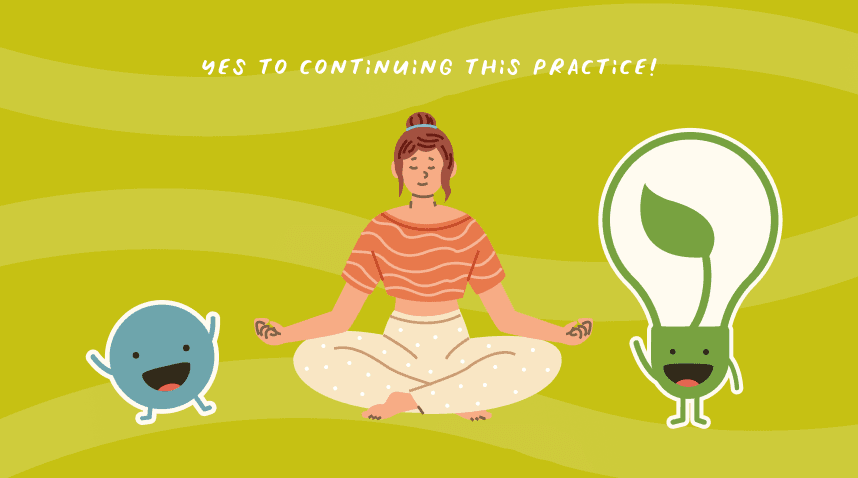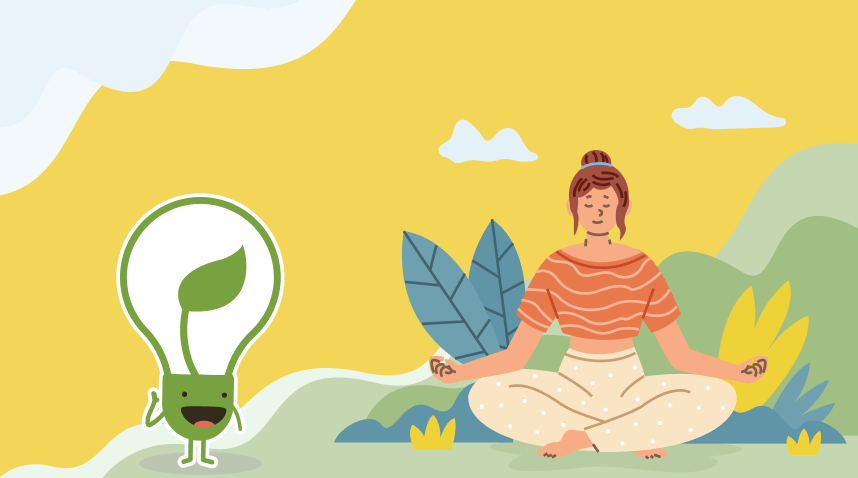Editor’s note: This is an abridged version of Roberta’s Vipassana experience post on her blog. There are many different ways to approach meditation and start learning. Some are more hardcore than others. Ultimately, it is about finding the techniques that suit your temperament and strengths. Roberta’s retreat experience represents one of the diverse Buddhist meditation techniques that one can try! Do check some out here
TLDR: The opportunity to sit in silence for 10 days was equally the hardest and most gratifying experience I’ve had so far. I decided to write about my Vipassana experience and try to distil my observations and reflections. Whether you one day embark on a similar retreat, or even if you don’t, I hope it encourages everyone to introspect on their mental thought patterns in a beneficial way. May we all break free from the thoughts that hold us back.
Ten days, a vow of silence, no interpersonal communication and absolutely no external distractions. Alcohol, tobacco, drugs, books, writing materials and any type of electronic device are all out of the question. Heck, you aren’t even allowed to bring your own snacks. Ten days with you, your mind and your body, separated from the material possessions that define you.
In this contained environment with nothing to escape to, would I be able to sit with the unwelcome visits of Madame Ego and Mr Monkey Mind with a compassionate lens?
What would consume me to attend a course like Vipassana? How has it impacted me, if at all. Where is my head after the experience and will I continue the practice? Let’s process.
Reflection
It was liberating to know that I could push my mind to sit through at times very gruelling sessions.
The course was a powerful practice of discipline, and a real humbling reminder that we don’t need to act on the critical, and often dominant, voice inside. It brought to the forefront the complexities of what we consider our identities, and how we have a say in how we define our experiences.
I was able to reflect on the many roles I play in my own life (partner, daughter, sister, friend…). I’ve rewritten this post a few times, in the hope of avoiding sounding like a generic Vipassana informational. I’ve landed on sharing the points that defined my Vipassana experience…
Grounding in nature

For those of us that live in cities, our daily lives are often dominated by being indoors and sheltered from the elements.
The opportunity to be in Blackheath, one of the highest points in the Blue Mountains surrounded by lush greenery, Australian rich red soils and rolling hills was a blessing.
It was a true lesson of living in the moment, as the weather would change in the blink of an eye. Sunshine and wispy white clouds would shift into ominous grey balls pissing down with showers. Howling winds would break into stillness.
Being lucky enough to attend in Spring, we became witness to flowers blossoming, majestic sunsets, and titillating thunderstorms (nature’s Dolby surround sound).
By day 3, there was an observable grounding in the cohort, people less on a mission, and more in the moment…
Remaining equanimous
The course requires meditators to follow a schedule from 4am-9:30pm daily, with up to 11 hours of seated Vipassana meditation each day.
Those hour-long sits with no movement, could easily make you think that time itself had cruelly and permanently stopped. Your body would scream and every cell in your body would be begging you to move. Yet, as physically or mentally excruciating as the sessions could be, each meditation block would come… and go.
Food times were a reminder of the same. The course schedule had two fixed meal times (6:30am and 11am), where we’d feel the short-lived exhilaration of receiving sustenance, a natural dopamine-lifting activity.
We’d happily receive a dollop of vegetarian food with some rice or bread and a simple side salad. We’d relish the warmth, or the spices, the crunch or smooth textures of the meal.
One perfect bite and all the memories of the painful hour before would all but dissipate. And as quickly as we’d lined up at the start, mealtime would be over and we’d be in another gruelling meditation session.
It was a true lesson of the impermanent nature of everything, good or bad.
Introspection

As the days progressed, it became more intuitive to observe the inner voices and mental thought patterns without being carried away by them.
By creating the intention of breathing and objectively noticing, it allowed space to question the patterns and impulses that sway us like ships in a storm.
Some meditations, I’d feel like walking out early and running away. Other’s I’d feel the competitive urge to stick it out. Slowly, the meditation time blocks became sacred and immovable, and it would only be my mind running away rolling through it’s dialogue.
It was particularly interesting to observe my mild human addiction to catastrophizing, assuming situations will result in the worst possible outcome (cut to scenes of when my clients would tell me they needed a word and I would agonise thinking I did something wrong when in actual fact, it was a kudos for a job well done). The whole experience became an exercise of observing sensations, acknowledging its existence and letting it pass or shift into something different.
Boredom
With none of the usual external objects of distraction handy, it was inevitable that I’d misconstrue the silence as boredom. However, surrounded by the crisp mountain air, allowing myself to do nothing allowed space for my most creative ideas and for old forgotten memories to surface.
New connections formed by linking new and old experiences resulted in new perspectives and questions to ponder. I remain evermore in awe of the brain and human spirit as it is a constant vault of activity that is never completely knowable to us.
I realised that my interpretation of boredom slowly shifted into enjoyment for the quiet space where these bouts of inspiration could appear.
Taking things less seriously
With no one to talk to and hours of often intense isolating meditation experiences, it was easy to get into an existential or philosophical mindset (Why did that memory come up? Why does it hurt so much? Who is that voice in my head? I feel restless, I should be at home writing…).
During a recess on Day 5, halfway through the course with a throbbing lower back and tight hips, I was reflecting on the morning Vipassana session, where the theme was a heavy reflection of my future.
Looking out at the deep green tree tops and rolling clouds, my mind swirled with thoughts of life after Vipassana and I felt a fire ignite in my gut about the changes I’d need to make.
Sitting on a log bench overlooking the valley, my eyes were glued to a particularly tall and striking gum tree, rooted by a thick speckled trunk with peeling strands of dark brown bark that looked to have weathered many storms.
As I sat in wordless oneness with the tree, an Australian wedge-tailed Eagle (I kid you not) landed on one of the branches, directly in my foreground.
For a moment, it looked like a scene from Aztecan folklore – a premonition of the greatness to come. The Eagle sat majestically in profile view for a postcard shot in my brain. Suddenly, it turned as if facing me beak-on, and… dropped a huge shit before flying away.
That broke my trance and made me laugh. Not everything has to have a meaning. It just is.
The experience this time was very different to my first stint 7+ years ago. Beyond being obviously younger, and more immature, my young adult mind was riddled with anxiety and concerns about the uncertain future.
This time around, despite the pending uncertainty, I approached the experience with far more curiosity, openness and acceptance of myself. I could observe my reactions and mental jerks (sudden movements, not the nasty voices) with a sense of understanding. I have faith in my ability to weather any storm.
Will I continue the practice?

Now the golden question is, will I continue the practice? At this point, the answer is yes, until it is no. I am living moment to moment. While not all aspects of the theory agree with me (or rather, I with it), I value the practice for helping to create space and awareness of my own internal dialogue and impulses.
It empowers us to make conscious choices and to be the Master of our Present – the only true way to try to influence the future.
I’m a strong believer in the benefits of meditation and have long incorporated different techniques into my own daily life. I’ve spent years facilitating mindfulness courses (for corporate groups), and guiding meditations and I continue to foster a mindfulness community that I am lucky to learn from regularly.
I see meditation and mindfulness practices as a cornerstone to good mental health and resilience. So I naturally get a little uncomfortable when the course links meditation to something as obscure as spiritual liberation. I choose to take this part with a grain of salt, as the technique itself is practical and a helpful observation of one’s internal self. I hope it doesn’t scare people off, who could actually benefit from any sort of meditation practice.
Wise Steps:
- Take time to observe your thought processes through a reflective activity, whether that be meditation, journaling, or talking to a therapist or friend. It will help to clarify your blocks.
- Take things less seriously. Everything passes with time. Everything.


